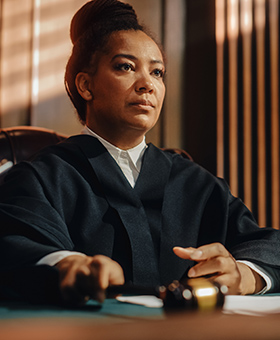Courses and specifics
- 90 credits
- Full-time
- Half-time
- Day course
- Dissertation or thesis track
Admission requirements
Admission requirements
Be sure to select your choices to display the eligibility conditions that apply to you.
- A comprehensive curriculum vitae.
- Two letters of recommendation from respondents (preferably university professors, including the candidate's master's thesis supervisor) who know the candidate personally and who can directly assess their research abilities by referring, ideally, to specific work produced by the candidate that the respondents were able to assess formally or informally.
- A two-page (maximum) submission outlining the candidate's educational and professional goals in applying to the doctoral program, demonstrating their motivation to undertake a large-scale research program and explaining all the circumstances that may have affected their past academic performance.
- A four-page (maximum) submission briefly describing their research project (even in an embryonic state).
- A copy of a major research paper (100 pages minimum, excluding appendices) previously produced by the candidate (e.g., a master's thesis). Please email this document to the PhD technician.
The minimum duration of the program is six full-time sessions. The maximum duration of the program is 15 sessions or 18 sessions if you began your studies as half-time.
Students must be registered as full-time. In some cases, the dean may allow a student to register as half-time (in exceptional cases).
Costs and financial aid
-
$2,183.05 *
Total for a full-time session of 15 credits
Tuition fees: $1,513.35
Other fees: $669.70
These amounts are estimates and do not account for other expenses, such as costs for insurance, residence, transportation, manuals, etc.
* These estimates cannot at any time subsitute for an invoice or be used as proof for any reason whatsoever. These calculations are based on the 2025-2026 academic year.
Information updated: July 17, 2025 -
$2,183.05 *
Total for a full-time session of 15 credits
Tuition fees: $1,513.35
Other fees: $669.70
These amounts are estimates and do not account for other expenses, such as costs for insurance, residence, transportation, manuals, etc.
Good news! You may be able to lower this amount!
Under certain conditions, Canadian students who are not residents of Quebec can follow university study programs offered in French while benefiting from the same tuition fees as residents of Quebec.
* These estimates cannot at any time subsitute for an invoice or be used as proof for any reason whatsoever. These calculations are based on the 2025-2026 academic year.
Information updated: July 17, 2025 -
$9,972.10 *
Total for a full-time session of 15 credits
Tuition fees: $9,302.40
Other fees: $669.70
These amounts are estimates and do not account for other expenses, such as costs for insurance, residence, transportation, manuals, etc.
* These estimates cannot at any time subsitute for an invoice or be used as proof for any reason whatsoever. These calculations are based on the 2025-2026 academic year.
Information updated: July 17, 2025 -
$2,183.05 *
Total for a full-time session of 15 credits
Tuition fees: $1,513.35
Other fees: $669.70
These amounts are estimates and do not account for other expenses, such as costs for insurance, residence, transportation, manuals, etc.
* These estimates cannot at any time subsitute for an invoice or be used as proof for any reason whatsoever. These calculations are based on the 2025-2026 academic year.
Information updated: July 17, 2025 - Calculate tuition fees based on other situations









